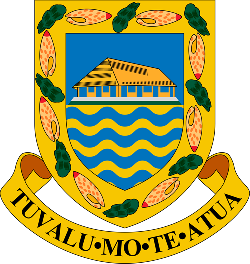Areas of Expertise
Project Status
Filter by project scope:
Project Type
Results
Image
Project Coordinator : Mr. Tomu Hauma Since 2015, under the sponsorship of the New Zealand Government, the Strengtening Water Security of Vulnerable Island States Project (shortened for the Water Security Project) started off in five island countries - Cook Islands, Kiribati, Republic of the Marshall Islands (RMI), Tokelau and Tuvalu. The project was particularly ignited by the 2011 drought epidemic in Tuvalu and thus developed to not only address impacts of drought in the five island countries but to also at least support and resolve other hazards on drinking water and its supplies. Such support has to be address through the project team efforts and the existing network of water related institutions on each of the five island countries. Thus both the Government and Civil Societies have their own part to play in the mix of addressing water problems in each of the five implementing countries. The project is regionally coordinated by the SPC, and implemented at the national level by each of the five island countries.
ObjectivesThe key objective of the project is to address impacts of drought and other hazards on drinking water supplies in each of the five implementing countries - Cook Islands, Kiribati, RMI, Tokelau and Tuvalu
Status: Completed
Institutional strengthening of Tuvalu's NDA and Preparation of Country Programme - The Tuvalu Readiness-1 project will highly support mechanisms on strengthening the NDA’s capacity and building on that capacity to deliver concise and effective measures in addressing climate finance, enhancing engagement with GCF, building on national stakeholders and private sectors, women and vulnerable groups communication whilst engaging them in decision making and voicing their opinions to build a reflective Country Programme and strategic framework.
ObjectivesThe project will supoort
(i) strengthening the institutional capacity of the NDA to fulfil its role and obligations to the Green Climate Fund (‘the Fund’) and
(ii) formulating a country programme to further enhance Tuvalu’s strategic engagement with the Fund.
For the first component, the NDA will work closely with the delivery partner and national stakeholders to put in place new or improved mechanisms, procedures and processes for accessing, managing and monitoring climate finance. For the second component, the NDA will engage government, civil society organisations, private sector and island communities to develop a strategic framework of climate change investments that are appropriate, transformative, and scalable, and are aligned with Tuvalu’s national sustainable development and climate change priorities
(i) strengthening the institutional capacity of the NDA to fulfil its role and obligations to the Green Climate Fund (‘the Fund’) and
(ii) formulating a country programme to further enhance Tuvalu’s strategic engagement with the Fund.
For the first component, the NDA will work closely with the delivery partner and national stakeholders to put in place new or improved mechanisms, procedures and processes for accessing, managing and monitoring climate finance. For the second component, the NDA will engage government, civil society organisations, private sector and island communities to develop a strategic framework of climate change investments that are appropriate, transformative, and scalable, and are aligned with Tuvalu’s national sustainable development and climate change priorities
Status: Current
Project Coordinator: Mr Saamu TuiAlthough climate change is cited as the most signifigant security threat to he south pacific, its likely effects on security and potential conflict are yet to be widely explored by the international an regional organisations present on the ground. Climate change in the pacific region has the potential for a myriad of cascading fragility and instability risks. These will affect men, women and youth differently, and vary across the region both according to timeframes under consideration and depending on the country context.There are a range of critical climate fragility risks emerging in the Pacific Region that will require greater examination, monitoring and coordinated action by many stakeholders at the national, regional and international level to prevent potential irrevesible economic, social, cultural and environmental damage with a range of potential security implications and a direct impact on social cohesion. Most critical issues amongst these include:
Status: Completed
Project Coordinator: Mr Lono LeneuotiSIDS rely on small coastal aquifers for their water supply needs. These coastal aquifers are fragile thin freshwater lenses that float on the underlying denser seawater and are reliant on rainfall for recharge. These coastal aquifers are at higher risk of impact to water quality deterioration from threats including saltwater contamination from sea level rise, over abstraction, wave overtopping, loss of aquifer area through coastal erosion, and other impacts on water quality from inappropriate land-use activities. Climate change exacerbates these long-running threats to coastal aquifers through increased climate variability and climate extremes. The fragility of coastal fresh groundwater systems necessitates careful management and protection to ensure their long-term integrity and their role in climate change adaptation strategies and improved water security. The project aims at improving the understanding, use, management and protection of coastal aquifers towards enhanced water security, including in the context of a changing climate. More specifically it aims at 1) identifying the extent, threats and the development potential of groundwater resources, 2) increasing awareness of groundwater as a water security supply source, 3) providing options for improved access to groundwater and 4) and improving aquifer protection and management, within Pacific Small Island Developing States.
Status: Current
